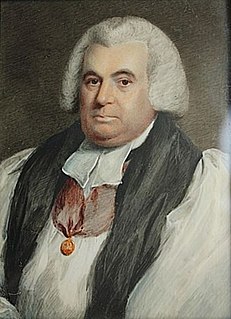A Quote by W. G. Sebald
At the most we gaze at it in wonder, a kind of wonder which in itself is a form of dawning horror, for somehow we know by instinct that outsize buildings cast the shadow of their own destruction before them, and are designed from the first with an eye to their later existence as ruins.
Related Quotes
A work of art... is not a living thing... that walks or runs. But the making of a life. That which gives you a reaction. To some it is the wonder of man's fingers. To some it is the wonder of the mind. To some it is the wonder of technique. And to some it is how real it is. To some, how transcendent it is. Like the 5th Symphony, it presents itself with a feeling that you know it, if you have heard it once.
We are, in fact, hyper-dimentional objects of some sort which cast a shadow into matter, and the shadow in matter is the body. And at death, what happens basically, is that the shadow withdraws, or the thing which cast the shadow withdraws, and metabolism ceases, and matter which had been organized into a dissipative structure in a very localized area, sustaining itself against entropy by cycling material in and degrading it and expelling it, that whole phenomenon ceases, but the thing which ordered it is not affected by that.
Aristotle said that philosophy begins in wonder. I believe it also ends in wonder. The ultimate way in which we relate to the world as something sacred is by renewing our sense of wonder. That's why I'm so opposed to the kind of miracle-mongering we find in both new-age and old-age religion. We're attracted to pseudomiracles only because we've ceased to wonder at the world, at how amazing it is.
I remember when I was a child, being taken to the celebrated Barnum's Circus, which contained an exhibition of freaks and monstrosities, but the exhibit on the program which I most desired to see was the one described as ‘The Boneless Wonder’. My parents judged that the spectacle would be too demoralizing and revolting for my youthful eye and I have waited fifty years, to see The Boneless Wonder sitting on the Treasury Bench.
The mere existence of an additional child or children in the family could signify Less. Less time alone with parents. Less attention for hurts and disappointments. Less approval for accomplishments. . . . No wonder children struggle so fiercely to be first or best. No wonder they mobilize all their energy to have more or most. Or better still, all.
No wonder if such persons look upon imputed righteousness as the shadow of a dream, who esteem those things which evidence its necessity to be but fond imaginations. And small hope is there to bring such men to value the righteousness of Christ, as imputed to them, who are so unacquainted with their own unrighteousness inherent in them. Until men know themselves better, they will care very little to know Christ at all.
Wonder was the grace of the country. Any action could be justified by that: the wonder it was rooted in. Period followed period, and finally the wonder was that things could be built so big. Bridges, skyscrapers, fortunes, all having a life first in the marketplace, still drew on the force of wonder.
But I still wonder how it was possible, in those graceless years of transition, long ago, that men did not see whither they were going, and went on, in blindness and cowardice, to their fate. I wonder, for it is hard for me to conceive how men who knew the word "I," could give it up and not know what they lost. But such has been the story, for I have lived in the City of the damned, and I know what horror men permitted to be brought upon them.





































